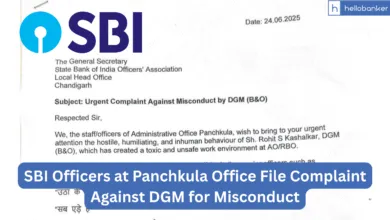The Dark Reality of today’s credit structure of Banks, Why RBI tightened norms?

| ➡️ Get instant news updates on Whatsapp. Click here to join our Whatsapp Group. |
In a move to curb the rampant growth of unsecured loans and address the associated risks, the Reserve Bank of India (RBI) has tightened capital norms for lenders disbursing such loans. This decision comes amid concerns over rising delinquencies and high risks associated with unsecured lending. Recently, Banks have been providing easy credit to public in the form of unsecured personal loan.
For example, Ashish had a ₹15 lakh car loan that had to be paid off in 12 months. Before he could repay his existing auto loan, he was being inundated by banks and NBFCs luring him into taking more loans. A large private bank offered him a top-up loan that’s akin to the value of his car, and another wanted to offer a loan that was 150% of the part of the loan that had already been paid off.
Riya has a similar story. “I swiped as much as ₹50,000 on my debit card to pay my child’s school fees. Immediately, I got a call from my bank offering to convert that payment into a loan which can be paid off in installments. Why would I want to take a loan which I can afford to pay?” she says.
Unsecured Retail Loans Soaring at an Alarming Rate
Unsecured retail loans, including personal loans, credit card receivables, and consumer credit, have witnessed an exponential growth rate of 26% compounded annual growth rate (CAGR) between FY18 and FY23. This growth has been driven by aggressive lending practices by banks and NBFCs, who have been actively pursuing consumers for loans.
Unsecured retail loans have been growing at a 26% compounded annual growth rate (CAGR) between FY18 to FY23, as per Nomura. In FY18, unsecured retail loans were 7.8% of bank credit and now they’re as high as 10.6%.
RBI’s Measures to Curb Unsecured Lending
To address these concerns, the RBI has taken the following measures:
- Classifying Top-up Loans as Unsecured Loans: Top-up loans, which were previously considered secured loans, will now be classified as unsecured loans, subjecting them to the same risk weight requirements.
- Increasing Risk Weight on Unsecured Loans: The risk weight on unsecured loans has been increased from 100% to 125%. This means that banks will have to set aside more capital for loans in this segment, making lending more expensive.
Impact on Banks, NBFCs, and Borrowers
The RBI’s move is expected to have a significant impact on banks, NBFCs, and borrowers:
- Banks and NBFCs: The increased capital requirements and higher risk weights will make lending to the unsecured loan segment less attractive for banks and NBFCs. This could lead to a slowdown in the growth of unsecured retail loans.
- Borrowers: The higher risk weights will also translate into higher interest rates for borrowers, making unsecured loans more expensive. This could discourage some borrowers from taking out unsecured loans.
Impact on Buy Now Pay Later Startups
The RBI’s move is also expected to have an impact on Buy Now Pay Later (BNPL) startups, which have been a major driver of unsecured lending in recent years. Analysts believe that the increased capital requirements could make it more difficult for BNPL startups to operate, leading to a slowdown in their growth.
Overall Rationale Behind RBI’s Move
The RBI’s decision to tighten capital norms for unsecured loans is a proactive measure to address the growing concerns over rising delinquencies and high risks in this segment. While it may impact the growth of unsecured retail loans in the short term, it is a necessary step to ensure the long-term stability of the financial system.
